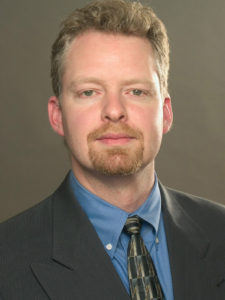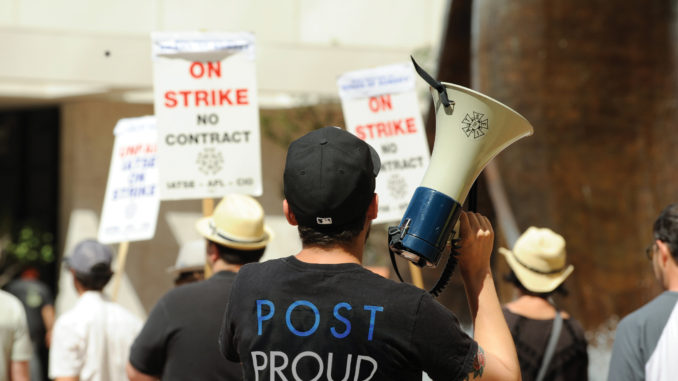by Tris Carpenter

Tris Carpenter.
As some of you know, the area of Reality Television has created situations that would be seemingly incompatible anywhere else. For some, it pays extremely well; for others, it’s one of the worst gigs around.
Assistant editors often have the opportunity to move up very quickly, but find the price is an increasingly worse deal when the money gets divided by the hours spent on the job. Some high-end producers offer excellent flexible schedules, yet flat rates have become more and more common. The networks and production companies are getting top dollar for advertising during Reality shows, yet most refuse to offer basic health insurance to their employees.
Why has this happened? Because people haven’t gotten together to make it stop, that’s why. But it can be changed.
The first thing that must happen is that the community of Reality Television editors and assistants needs to unite behind some basic ideas about how people who have the skills and talent and education that they posses should be treated. There must be some consensus around the idea that the networks and production companies owe them more than a paycheck for their work, that health insurance and long-term security are important and necessary parts of the compensation package, and that the flat rate system (which is illegal, by the way) should be stamped out.
If the opinion of this community can unify, then the Motion Picture Editors Guild can help make these ideas come to life.
Through contracts negotiated by the IATSE and the Guild, the Motion Picture Industry Pension and Health Plans (MPIPHP) provides portable health insurance and a pension and retirement plan that can create a much more stable future for all editors. Sure, if you’re making $5,000 per week, you can buy your own insurance––for a while. But what happens when Reality gets pushed aside for the Next Big Thing? Where will you be then?
In Hollywood, working an Editors Guild job means an excellent health plan paid for by the employer that you and your family can grow with, and continue to use from job to job. It also means a pension plan that can provide regular financial benefits (in addition to whatever you save on your own) for your retirement. The MPIPHP is the glue that has held the Hollywood motion picture community together for years (similar structures exist in New York and other cities). These benefits have made it possible for people to create long careers that span many decades and several employers. Training programs offered by the Guild also help provide a more secure future.
The argument that “It’s not fair” is simply not enough. If people can reach a consensus and are willing to talk to one another to bring about a united front, then we will begin to build the power required to make real changes.
The Guild can help people keep up with changing technology through in-house seminars and discounted classes at various outside training facilities. Our practice rooms can help them keep their skills sharp after completing courses, too. We also hold several screenings (yes, free films!) and other non-technical programs for our members that provide networking opportunities and help you to make connections with editors in other sectors––and we all understand that it’s “who you know” in this business.
Apart from the fact that the flat rate system is in clear violation of state and federal laws, working insane hours at some dismal flat rate is an absurd proposition for people with the professional and technical expertise required of editors. Overtime and weekend premiums, which are a standard part of all IATSE contracts, can provide a major financial disincentive for producers who want to run assistants (or editors!) ragged on a flat rate. If nothing else, overtime premiums can force a production company to run a more efficient show in order to avoid major cost overruns.
If the community can unite around these basic ideas and the solutions provided by unionizing with the Guild, we can move forward and begin to organize on a more wholesale basis. Yes, our organizing in the past has been company-by-company, and the legalities of the situation will probably continue to require that method. But if a shift in the attitude of the community occurs, the Guild may be able to move in a more widely coordinated fashion, one that makes great strides instead of baby steps.
The argument that “It’s not fair” is simply not enough. In fact, fair has not much to do with it at all. It is about power and whether we have enough to get what we’re after. If people can reach a consensus and are willing to talk to one another to bring about a united front, then we will begin to build the power required to make real changes.
If not, well then things will continue to be as they are now – some people doing well, some not, and the future uncertain for all of them.


